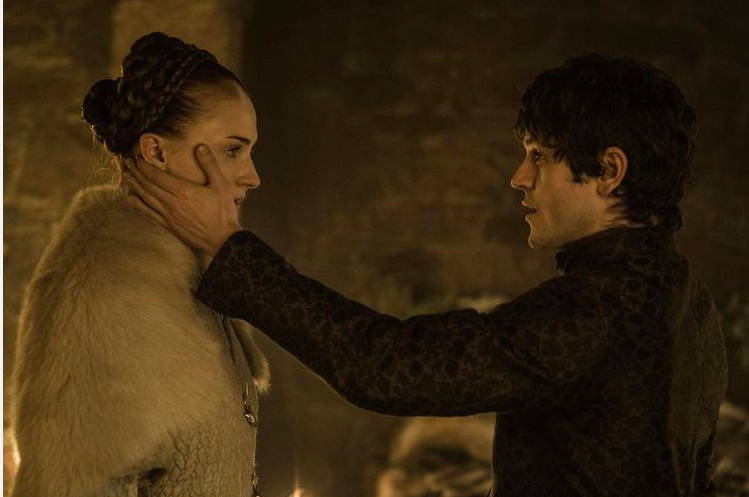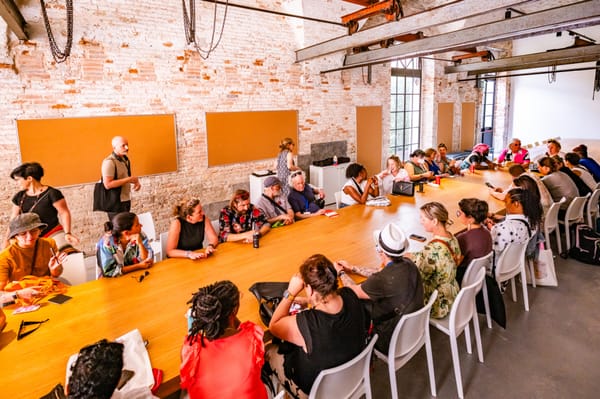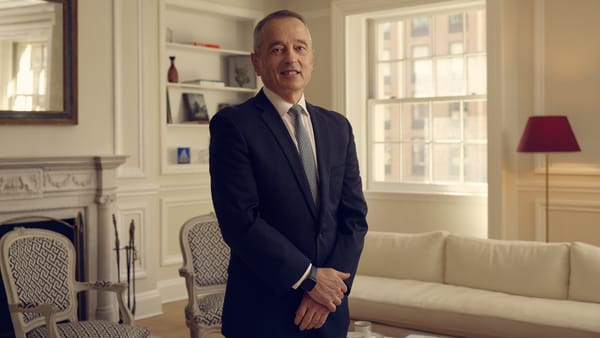Sunday Night's 'Game of Thrones' Episode Doesn't Endorse Rape
I think that there is ample justification for the disturbing scene in “Unbowed, Unbent, Unbroken.”

Sunday night’s episode of the hit HBO series Game of Thrones, “Unbowed, Unbent, Unbroken,” featured a disturbing rape scene that has already prompted widespread outrage. The tableau in question is indeed distressing: Sansa, long-suffering daughter of the late Eddard Stark, is brutalized by her sadistic and sociopathic husband Ramsay Bolton on their wedding night, all while a demoralized Theon is forced to look on. Like Theon, we bear unwilling witness to a crime that disgusts us, unable to stomach what we see but unable to avert our gaze.
Most of the ensuing criticism has focused on the scene’s gratuity: it establishes nothing about Ramsey’s sociopathic character that we didn’t already know, argued Jen Trolio in Vox; “was it really necessary?” Tom Ley asked in Deadspin; “rape here, like in all instances, is not a necessary story-driving device,” wrote Jill Pantozzi in Mary Sue. Senator Claire McCaskill of Missouri tweeted that she’s done with the show, citing the “gratuitous rape scene,” which she found “disgusting and unacceptable.” And this isn’t the first time Game of Thrones has come under fire for its graphic depictions of sexual violence: last spring, an episode in which Jaime rapes his sister and lover Cersei precipitated a similar controversy.
In that instance, critics targeted the director of the troubling episode, who claimed that Jaime and Cersei’s sex became “consensual by the end.” There is no justification for such a comment — and no justification for the implicit assumption that a sex act with coercive origins can ever be redeemed. I think, however, that there is ample justification for the disturbing scene in “Unbowed, Unbent, Unbroken.”
As Trolio, Ley, and Pantozzi point out, we already know that the world of Game of Thrones is untenably patriarchal. But a cursory acknowledgement isn’t enough. To admit to the existence of the patriarchy is one thing. To confront it at every turn — to experience the lived reality of ubiquitous misogyny and life under constant threat of sexual violence — is something else entirely. For women in the Middle Ages and for many women now, the horrors don’t let up after a particularly traumatic episode has “established” that sexual violence is a problem. The biggest horror of all is that gendered brutality is ongoing, relentless, and unremitting. Game of Thrones is right to expose us not only to the barbarity of a single act of rape but also to the intransigence of rape culture as a whole.
Moreover, to depict rape is not necessarily to endorse it. Narrative TV cannot effectively condemn an act unless it can also portray it. The scene in question represents a viscerally compelling critique of Ramsay’s behavior, and it goes on to advance a nuanced theoretical objection to the systems that all to often enable sexual violence, prompting us to contemplate our own complicity therein. Theon’s passive spectatorship in the face of sexual exploitation is disquietingly reminiscent of our own.
Finally, to require that everything included within a narrative constitute a “necessary story-driving device” is to set the bar somewhat inanely. Nothing in a fictional narrative is, strictly speaking, “necessary:” everything can be omitted at the expense of internal consistency or the richness of the imagined world. Sure, we already know that Ramsay is a sociopath, but including additional details enriches our understanding of his character and adds a layer of believability to the Game of Thrones universe.
Rape is — and should be — difficult to watch, and it’s reasonable for Game of Thrones viewers to feel too disgusted by it to go on with the series. That’s their prerogative. Rape victims and survivors are entitled to dismiss graphic images if doing so aids in their healing process, and no one is obligated to watch or enjoy a scene like the one in “Unbowed, Unbent, Unbroken.”
But sexual violence is also an unfortunate fact of life — one that meaningful television might do well to grapple with. The best shows aren’t merely entertaining: they make an effort to engage and enthrall us, but they also do their best to work social critique somewhere into all the flashy intrigue. And any effective critique of rape culture will disgust and upset us, as it must and should.




